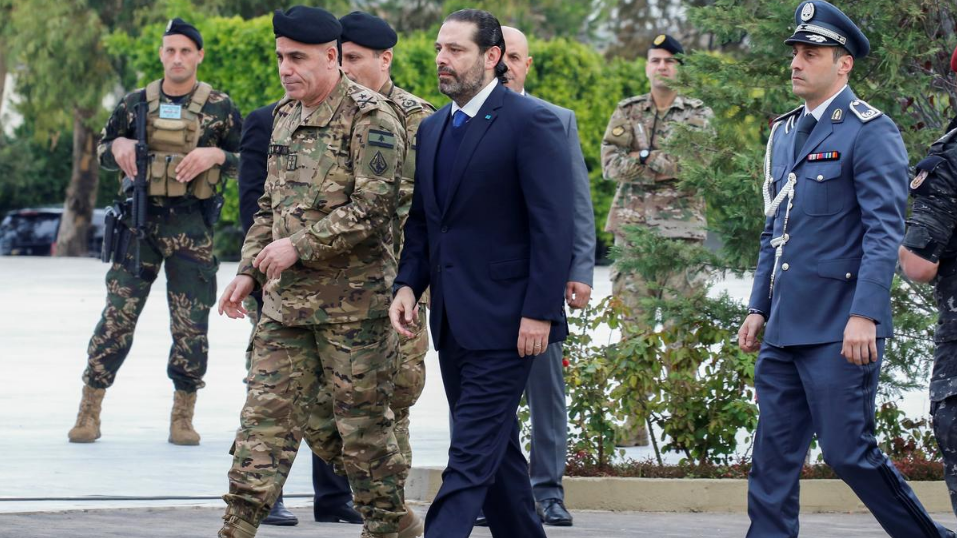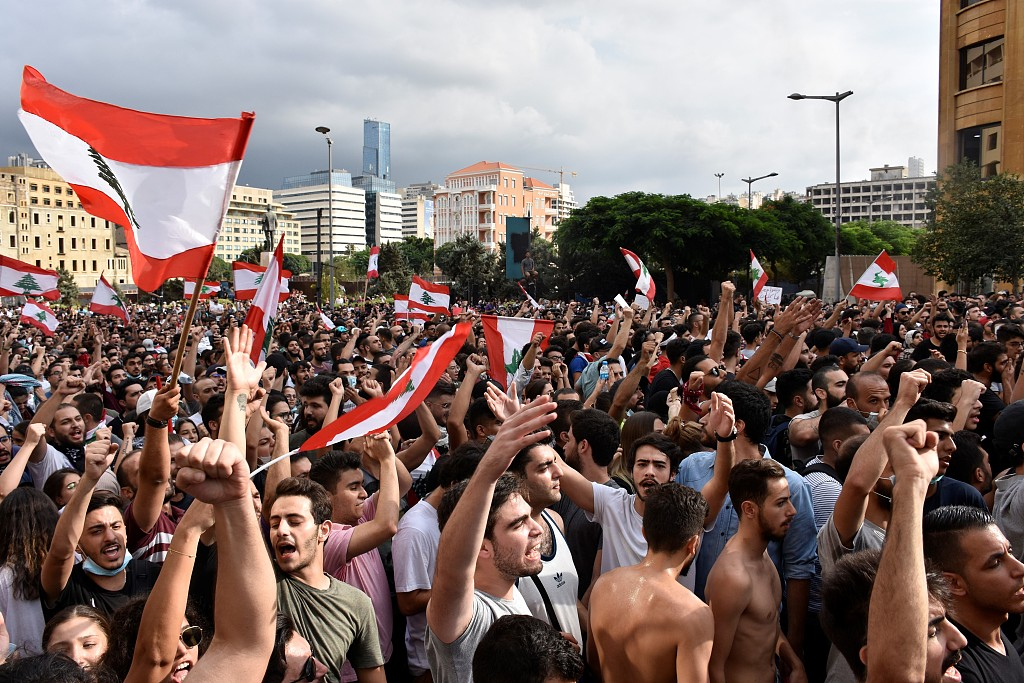Lebanon's leading Sunni Muslim politician, Saad al-Hariri, re-emerged as a candidate for prime minister on Sunday when businessman Samir Khatib withdrew his candidacy to lead a government that must tackle an acute economic crisis.
President Michel Aoun responded by postponing until December 16 consultations with lawmakers that had been expected to result in Khatib being named prime minister on Monday. The delay was requested by most parties in parliament, the presidency said.
Hariri quit as prime minister on October 29, prompted by mass protests against an entire political class blamed for state corruption and steering Lebanon into the worst economic crisis since the 1975-90 civil war.

Lebanon's caretaker Prime Minister Saad al-Hariri arrives to attend a military parade to mark the 76th anniversary of Lebanon's independence at the Ministry of Defense in Yarze, Lebanon, November 22, 2019. /Reuters Photo
Lebanon's caretaker Prime Minister Saad al-Hariri arrives to attend a military parade to mark the 76th anniversary of Lebanon's independence at the Ministry of Defense in Yarze, Lebanon, November 22, 2019. /Reuters Photo
Under the country's power sharing system, the prime minister must be a Sunni Muslim. Hariri has continued to govern in a caretaker capacity until a new prime minister is named.
After Hariri quit, talks to agree a new cabinet became mired in divisions between Hariri, who is aligned with Western and Gulf Arab states, and adversaries including the Iran-backed Shi'ite group Hezbollah. Last month Hariri officially withdrew his candidacy to be prime minister.
A consensus on Khatib appeared to form last week among the main parties, including Hariri. But Khatib failed to win enough backing from the Sunni Muslim establishment for the position.
Grand Mufti Sheikh Abdul Latif Derian, Lebanon's most senior Sunni cleric, told Khatib during a meeting on Sunday that he backed Hariri, Khatib said after the meeting.
"I learnt ... that as a result of meetings and consultations and contacts with the sons of the (Sunni) Islamic sect, agreement was reached on nominating Saad al-Hariri to form the coming government," Khatib said.
Khatib later went to see Hariri at his Beirut residence where he announced the withdrawal of his candidacy.

Lebanese demonstrators gather at Martyrs' Square for an anti-government protest against dire economic conditions and new tax regulations on communication in Beirut, Lebanon, October 18, 2019. /VCG Photo
Lebanese demonstrators gather at Martyrs' Square for an anti-government protest against dire economic conditions and new tax regulations on communication in Beirut, Lebanon, October 18, 2019. /VCG Photo
There was no immediate statement from Hariri.
In recent days, in his role as caretaker prime minister, Hariri appealed to friendly foreign states to help Lebanon secure credit lines for essential imports as the country grapples with a hard currency shortage.
He has said he would return as prime minister only if he could lead a government of specialist ministers which he believes would satisfy protesters and be best placed to deal with the economic crisis and attract foreign aid.
But this demand has been rejected by groups including Hezbollah and its ally Aoun, a Maronite Christian. Both say the government must include politicians.
On Sunday evening, dozens of protesters gathered in central Beirut near a road leading to parliament closed off by security forces. Cabinet formation can drag on for months in the multi-confessional country, with Hariri taking almost nine months to reach an agreement with all political sides for the last one.
Lebanon desperately needs a new government to rebuild trust with both protesters demanding a cabinet of independent experts, and international donors able to provide financial aid.
The Mediterranean country's economy is in freefall, even as the Lebanese struggle with a dollar liquidity crisis. The World Bank has projected negative growth of 0.2 percent in Lebanon for 2019, but now warns the recession could be even worse. Around a third of Lebanese live in poverty, and that figure could soon rise to half, it says.
(With input from Reuters, AFP)